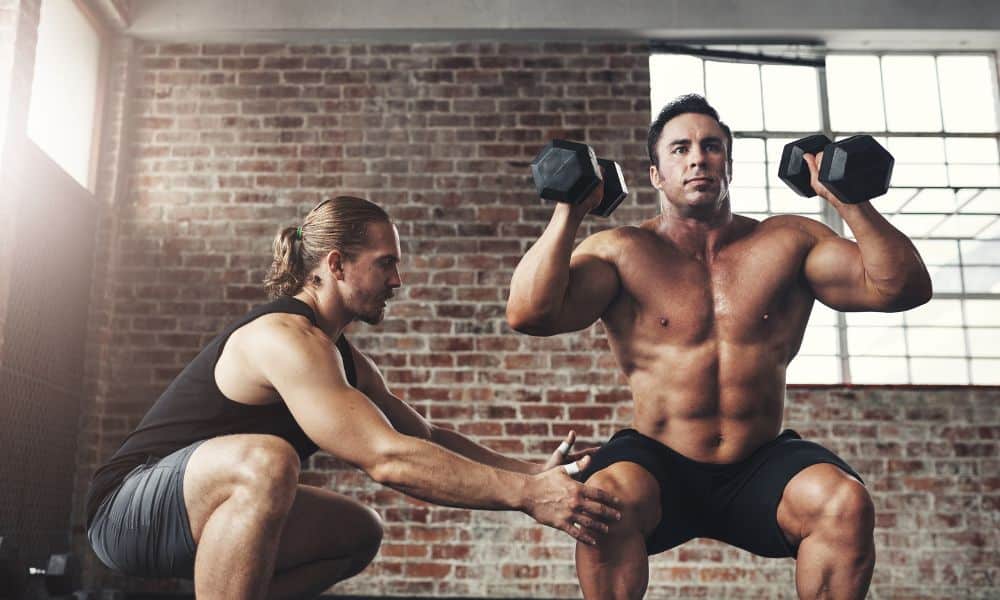Strong is the new sexy. With so many health benefits, more people turn to weightlifting than ever before. But every athlete, from Olympic champions to award-winning female weightlifters, has to start somewhere. So, are you beginning a new weightlifting program? Before hitting the gym, take the proper steps to protect your body from injuries. Then, let’s explore how to lift weights safely.
Always Warm-Up and Cool-Down
If you’re starting a weightlifting program, ensure you’re warming your body up and cooling it down after the workout. A warm-up revs up your cardiovascular system. It raises your body temperature, improves circulation, reduces muscle soreness, and decreases your risk of injury. Try warming up with a 10-minute walk, a five-minute jog, or a 15-minute stationary cycle.
A proper cool-down ensures your body can recover. For example, it regulates blood flow and heart rate after an intense weightlifting session. In addition, stretching boosts flexibility, range of motion, and athletic performance. Cool down after your workout with a walk or a few laps in the pool.
Practice Proper Form
It’s easy to get hurt when completing a weightlifting program without proper form. Between 1990 and 2007, there were over 970,000 weight training-related injuries that required treatment by US hospitals. This is because your body falls out of alignment when you lift something heavy.
Also, this can cause strains and tears. Maintaining the correct form protects your body from swinging and swaying. If you’re new to lifting, work with an instructor. You won’t need to work with a trainer forever, but a few sessions allow you to learn proper weightlifting techniques. Educate yourself now to prevent injuries later.
Listen to Your Body
The workout will confuse your body if you’re starting a new weightlifting program. Expect mild soreness and fatigue after your first sessions. Keep an eye out for signs you’re doing too much. Your body will alert you if you’re overworking or lifting too much weight. These signs include:
- Irregular heartbeats
- Decreased strength, power, and endurance
- Reduced coordination
- Increased blood pressure
- Irritability
- Frequently feeling under the weather.
- Slow healing
- Intense soreness
There is such a thing as lifting too much weight too often. Overworking your muscles leads to exhaustion, weakness, and injuries.
Take Safety Precautions
Protect yourself and others by taking the correct safety protocols while completing a weightlifting program. Adhere to proper lifting techniques when exercising and moving around the gym. Use a spotter when lifting heavy barbells. A spotter ensures you’re safely challenging yourself. It’s good to know someone is paying attention and can intervene if necessary.
Ask a friend, a fellow trainer, or a gym staff member to spot you. Wear high-quality footwear with adequate traction. Ensure the equipment is in good condition and you’re using it correctly. Stop lifting if you experience pain. Also, don’t exercise the same muscles over three times a week. Instead, breathe out while you lift to keep your body stable.
Gradually Increase Your Weight
Remember, you are a beginner. Don’t treat your weightlifting program as a competition. Slow and steady training leads to long-lasting results. Start with a weight you can comfortably lift 12 to 15 times. As you get stronger, slowly increase it. Add five pounds at a time. Let your body slowly build muscle. Rushing into heavier weights leads to injuries and discomfort.
Find a Weightlifting Program for You
You can build muscle by taking the proper precautions while ensuring your body stays safe. Explore these articles if you’re looking for more information on weightlifting programs. We’ve got what you need, from increasing your power to creating an exceptional workout.




